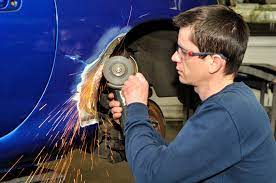Essential Tips for Maintaining Your Vehicle’s Health
Key Takeaways
- Regular vehicle maintenance can prevent costly repairs.
- Staying on top of fluid levels and tire health is crucial.
- Using quality replacement parts can extend your vehicle’s lifespan.
The Importance of Regular Vehicle Maintenance
Regular vehicle maintenance is more than just a good habit—it’s necessary to ensure your car remains reliable and safe. Routine examinations can detect small problems early on, preventing them from becoming major issues and ultimately saving you both time and money. Consistent upkeep can also help maintain your car’s value over time. According to a Carfax news article, a well-maintained vehicle runs more efficiently and can even help pass stringent regulatory emissions tests. This means you keep your vehicle in top shape and contribute positively to the environment.
Checking Fluid Levels and Tire Health
One of the simplest yet most effective maintenance practices includes regularly checking your car’s fluid levels. This encompasses oil, brake fluid, coolant, and transmission fluid. You can avoid unexpected breakdowns and costly auto repair by staying proactive with maintenance. Proper fluid levels ensure that your engine and other mechanical parts run smoothly and are well-lubricated, which can lead to a longer vehicle lifespan. Additionally, checking tire pressure and tread health is crucial. Properly inflated and maintained tires improve fuel efficiency and offer better road grip, reducing the likelihood of accidents. According to a Consumer Reports article, under-inflated tires can reduce fuel economy by as much as 3%. Regular inspections can thus save you money and increase your vehicle’s performance.
Brake and Battery Maintenance
Your vehicle’s brakes and battery are critical components that require regular attention. Your brakes are one of the most essential systems in your car. Regular inspections can help you detect worn-out brake pads, which can damage more costly brake components like rotors and calipers if not replaced in time. In addition to brake maintenance, consider regular dent removal services to maintain your vehicle’s appearance and prevent minor dents from leading to more significant issues. Similarly, ensure your battery terminals are clean and secure to avoid starting issues. A simple battery check involves inspecting the battery’s charge and looking for any signs of corrosion on the terminals. Pay attention to how your car starts; a sluggish start could indicate an aging battery. Maintaining a healthy battery also means checking the alternator, as a failing alternator can shorten the life of your battery.
Using Quality Replacement Parts
Opting for high-quality replacements can make a significant difference when it comes time to replace parts. Quality parts are often more durable and perform better, which can help prevent future issues. Stick to reputable brands and consider OEM (Original Equipment Manufacturer) parts for the best fit and performance. These parts are made to meet the specifications of your vehicle’s manufacturer, ensuring a seamless fit and optimal performance. While they may be pricier, their longevity and reliability make them a worthwhile investment. Moreover, using quality parts can often come with warranties, giving you added peace of mind.
Understanding Your Vehicle’s Warning Signs
Your car has various warning lights designed to alert you to potential issues. These lights are your vehicle’s way of communicating that something needs attention. Neglecting these warning signals may result in more severe and expensive issues in the future. For example, the warning light for the engine can signal various problems, ranging from a loose gas cap to more serious engine malfunctions. Recognizing and dealing with these indicators promptly can stop small problems from escalating into significant issues. Whether it’s a glowing check engine light or a brake warning, it’s imperative to consult your vehicle’s manual for guidance on what each warning light means. Timely intervention can protect your vehicle from significant damage and reduce repair costs. Always err on caution and get a professional diagnosis if you’re unsure.
Seasonal Vehicle Maintenance Tips
Different seasons bring unique challenges for vehicle maintenance. In the winter, ensure your antifreeze levels are adequate and your battery is in good condition. Cold weather can be particularly harsh on your vehicle, affecting everything from battery life to tire pressure. Summer demands attention to your car’s cooling system and air conditioning. The high temperatures can cause your engine to overheat, making it necessary to check your coolant levels and radiator condition frequently. Adjust your maintenance routine to fit the seasonal requirements to keep your car running efficiently all year round. For instance, in autumn, you should check the health of your windshield wipers in preparation for the rainy season. Each season has its maintenance tasks, so adapt your routine accordingly.
When to Seek Professional Help
While regular maintenance is something any vehicle owner can handle, knowing when to seek professional help is vital. Some problems require specialized knowledge and tools that only a professional can provide. For example, an expert should always handle transmission or complex electrical systems issues. If you notice strange noises, persistent warning lights, or any irregularities in your car’s performance, consult a professional mechanic. Getting help early can prevent the need for costly and extensive repairs later on. Your reliable mechanic can offer professional perspectives and detect problems that might not be obvious to someone without training. Remember, preventative maintenance may cost a little upfront but can save you significantly in the long run.



